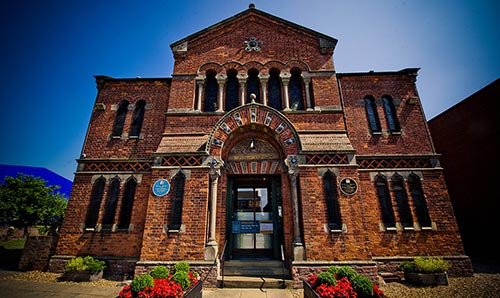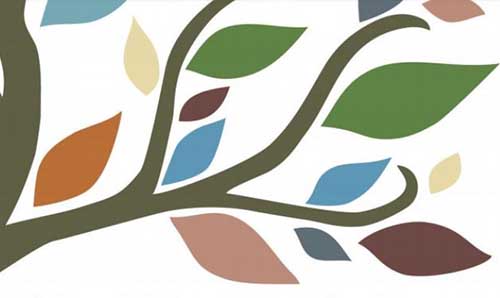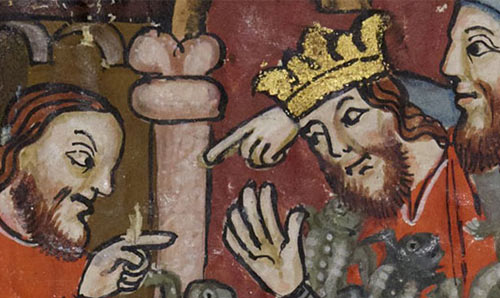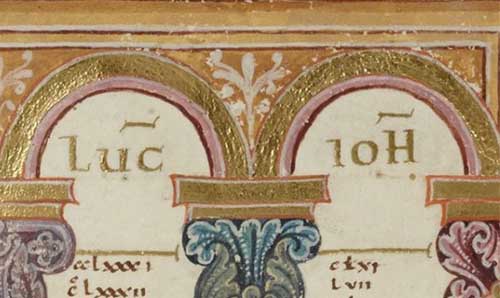Centres, networks and clusters
Find out more about the specialist work of the centres, networks and clusters in Religions and Theology.
Centres

Centre for Jewish Studies
The Centre acts as a focus for Jewish Studies at the University of Manchester and also as the hub for the Northern UK Jewish Studies Partnership.

Lincoln Theological Institute
The LTI offers expertise in the theological study of religion and society, and promotes theological research.

The John Rylands Research Institute and Library
Bringing together experts from The University of Manchester Library and the Faculty of Humanities.

Centre for Medieval and Early Modern Studies
Academics and PhD students working on the Middle Ages, the early modern period, and their legacies.
Groups and networks
In addition to our research centres, the department has a number of research groups and informal research networks promoting areas of shared interest.
Research groups
Research networks
Christian Studies
Christian Studies is one of the department’s major strengths and constitutes a lively part of the department’s research culture. Christian Studies has three interlinked strands, each of which also relates to the reception of authoritative scriptures.
Theological Studies research examines the historical genesis of contemporary concerns, such as the use of masterful knowledge in Church power. This, in the context of European political theology and decisionism, has been the topic of Michael Hoelzl’s publications, including his 2017 book Theorie vom guten Hirten (Theory of the Good Shepherd). David Law’s publications concern Christology, in particular kenotic theology, in its biblical and wider context. He is an internationally recognized expert in the thought of Søren Kierkegaard and other 19th-century theologians, and engaged in theological inter-faith dialogue. The Department invites leading theologians to present the Samuel Ferguson lecture in March of each year. Speakers have included Fergusson, Edinburgh (2014); Grosshans, Münster (2015); Soskice, Cambridge (2016); Ford, Cambridge (2017); Milbank, Nottingham (2018); Tanner, Yale (2019), Rowan Williams, Cambridge (2021) and Keller, Drew (2022).
Social Ethics research is undertaken by the Lincoln Theological Institute, a key UK contributor to the discourse on religion and science. Themes have included societal changes wrought by technology and climate change, with four funded post-doctoral researchers since 2014. LTI director Peter Scott is the author of A Theology of Postnatural Right (2019) and a Fellow of the Princeton Center of Theological Inquiry (1996–) as well as a member of its international project in Religion and Astrobiology (2018–). Scott Midson is the author of Cyborg Theology: Humans, Technology and God (2017) and serves on the interdisciplinary working group on ethics at Manchester University’s Centre for Robotics in the Faculty of Science and Engineering.
Manchester’s rich religious history also offers a wide range of possibilities for studying and researching the History of Christianity. Research in this area is often supported by close cooperation of the Department with the Manchester Wesley Research Centre and the John Rylands Research Institute and Library. The special collections held by the University’s John Rylands Library include archives of global importance in the history of Methodism, Unitarianism and the Christian Brethren. The department is active in a number of research networks in these areas, which connect US, Irish, and UK universities. It also cooperates with Wesley researchers at Nazarene Theological College and Cliff College, two institutional partners whose doctoral degrees are validated by the Religions and Theology Department.
Islamic Studies
Religion and science in the Islamic world is researched by Dr Kamran Karimullah, appointed after his Post-Doctoral Research Associateship in Manchester’s AHRC project ‘Genealogies of Knowledge’. He has published extensively on premodern Islamic philosophy and medicine. More recently, he has used digital methods to study medieval cross-cultural Islamic discourses on science and medicine, as well as studying Qur’an reception and Islamic discourses on gender and the environment.
Prof. Alan Williams has continued his research on Rumi’s Masnavi funded by the British Academy (2013–16) and Leverhulme Trust (2016–19), producing an annotated new translation from the Persian (The Masnavi of Rumi, 2 vols., 2020), as well as his investigations of Iranian religions.
Research Impact Advisory Group
Fifteen experienced societal stakeholders, representing a variety of organisations dedicated to improving aspects of civic and religious life, advise the Department as members of the Research Impact Advisory Group. For more information and a list of members visit the Research Impact Advisory Group page.



